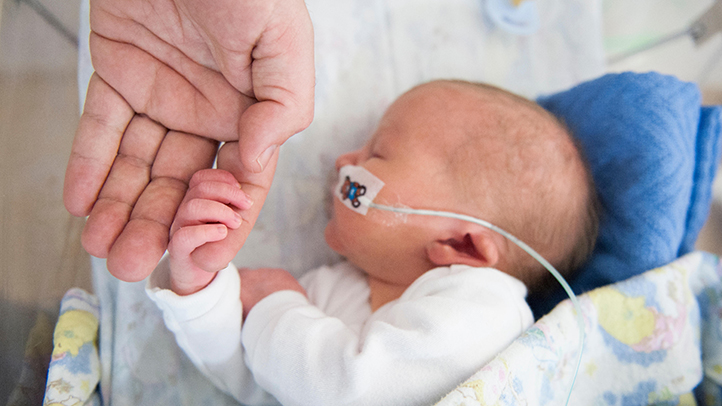Coping with Postpartum Rage: Understanding, Addressing, and Managing Intense Emotions
Postpartum rage is a distressing but not uncommon experience for new parents, particularly mothers. The early days of parenthood are often marked by significant stress, sleep deprivation, and the overwhelming responsibility of caring for a newborn. While much focus is placed on postpartum depression, less attention is often given to postpartum rage—a reaction that, while unsettling, is an important signal that your body and mind need attention.
What Is Postpartum Rage?
Postpartum rage refers to sudden, intense anger or irritability that can arise during the postpartum period. Unlike the ongoing sadness or hopelessness associated with postpartum depression (PPD), postpartum rage manifests in brief but powerful episodes of anger. According to Lauren Hays, PMHNP, a psychiatric nurse practitioner, postpartum rage is “intense anger and irritability that can occur in the postpartum period,” signaling that a parent’s needs are not being met.
Postpartum Rage vs. Postpartum Depression
While postpartum rage can occur independently, it is often linked to postpartum depression or anxiety. Jill Zechowy, MD, MS, a perinatal mental health physician, explains that while irritability can be a symptom of PPD, postpartum rage can also exist on its own. The key difference lies in the duration and nature of the emotions: PPD is characterized by persistent low mood, while postpartum rage involves intense, short-lived anger that may feel uncontrollable.
Causes of Postpartum Rage
Postpartum rage is typically a response to the immense stress, sleep deprivation, and hormonal fluctuations that accompany new parenthood. Rachel Goldberg, MS, LMFT, a postpartum specialist, notes that the sudden increase in life responsibilities after childbirth, coupled with a lack of sleep and support, can contribute significantly to these episodes of intense anger. Hormonal shifts after birth further exacerbate these feelings, as does the pressure to meet the demands of caring for a newborn.
Symptoms of Postpartum Rage
Postpartum rage may manifest as:
- Sudden, intense outbursts of anger or irritability
- Physical symptoms such as a racing heart, flushed skin, or muscle tension
- Feelings of guilt, shame, or fear after an outburst
- A sense of losing control during these episodes
How Is Postpartum Rage Diagnosed?
Postpartum rage is not a formal diagnosis within the Diagnostic and Statistical Manual of Mental Disorders (DSM-5). Instead, it’s considered a symptom that may indicate underlying issues such as postpartum depression or anxiety. Recognizing and addressing postpartum rage is crucial, as it’s often a sign that a parent’s needs are being neglected.
Treatment for Postpartum Rage
Treatment for postpartum rage often involves a combination of therapy, support, and, in some cases, medication:
- Therapy: Cognitive-behavioral therapy (CBT) and other forms of counseling can help identify triggers and develop strategies to manage anger.
- Medication: If postpartum rage is linked to PPD or anxiety, antidepressants or anti-anxiety medications may be recommended by a healthcare provider.
- Support: Seeking support from a partner, family, or postpartum support group can alleviate feelings of isolation and stress.
Additional Coping Strategies for Postpartum Rage
- Prioritize Self-Care: Schedule regular time for yourself to recharge, whether it’s a walk, a nap, or engaging in a favorite hobby.
- Communicate Needs: Talk openly with your partner or support system about what you need to feel supported.
- Practice Relaxation Techniques: Incorporate mindfulness practices such as meditation, deep breathing, yoga, or journaling into your daily routine.
- Express Anger Safely: Use grounding techniques like stomping your feet, punching a pillow, or vocalizing your feelings in a safe environment to release pent-up anger.
How Long Does Postpartum Rage Last?
The duration of postpartum rage varies depending on the individual’s circumstances, including the level of support they receive and their overall mental health. Dr. Zechowy emphasizes that postpartum rage may persist as long as a mother remains overwhelmed and exhausted. Addressing the underlying causes—such as sleep deprivation, unmet needs, and potential mental health conditions—can help reduce the intensity and frequency of rage episodes.
Conclusion
Postpartum rage is a powerful signal that something is amiss in a new parent’s life. It’s important to remember that these feelings don’t make you a bad parent; they indicate that you need more support, rest, and self-care. By addressing your emotional and psychological needs early, you can manage these intense emotions and create a healthier, more balanced environment for both you and your baby. If you find yourself struggling with postpartum rage, don’t hesitate to reach out to a healthcare provider for help and guidance.



